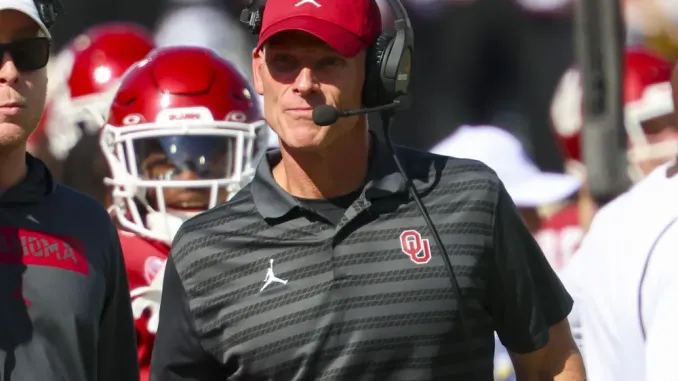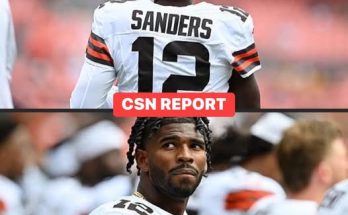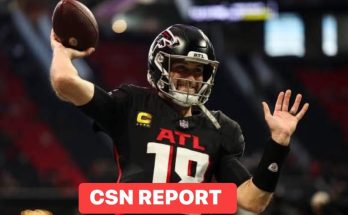ESPN’s 2025 Way-Too-Early Top 25: Why the Oklahoma Sooners Are Missing
When ESPN released its 2025 Way-Too-Early Top 25 rankings for college football, the absence of one key team raised eyebrows across the college football community: the Oklahoma Sooners. For a program with a rich history, including multiple national championships and Heisman-winning quarterbacks, being excluded from this list was a significant shock. Oklahoma, typically a fixture in national conversations, failed to crack the rankings, and many are left questioning why.
In this article, we’ll dive into why the Sooners didn’t make the cut, explore the factors that have led to their exclusion, and consider what needs to happen for Oklahoma to return to national prominence and regain its spot among the nation’s elite teams.
1. Recent Underperformance and Transition
The Oklahoma Sooners have been a staple of college football success for over two decades. However, their recent performances have led to questions about whether the program is losing its grip on elite status. The transition to the SEC in 2024 has further complicated their future trajectory, and ESPN’s decision not to include them in the Way-Too-Early Top 25 is a reflection of these uncertainties.
Oklahoma’s once-unstoppable offensive attack under head coach Lincoln Riley was its trademark, but since Riley’s departure to USC after the 2021 season, the program has struggled to maintain its prior success. With Brent Venables, former Clemson defensive coordinator, taking the reins, the Sooners have focused on improving their defense. However, this transition has had mixed results. Venables inherited a team with offensive-minded talent, but he is still working to reshape the defense into one that matches the championship pedigree of previous Oklahoma teams. In his first year, Oklahoma posted a disappointing 6-7 record, and while 2023 showed signs of improvement, it was still a far cry from the team’s previous dominance.
The struggles to find consistent success on both sides of the ball, combined with an uncertain transition to the SEC, were likely key reasons for Oklahoma’s exclusion from the rankings.
2. Coaching Changes and Leadership Shifts
The departure of Lincoln Riley left a significant hole in Oklahoma’s program. Under Riley, Oklahoma was not only a top-tier offensive juggernaut but also a national championship contender. His ability to develop quarterbacks was unmatched, and his high-flying offenses consistently put up impressive numbers. However, his unexpected move to USC created a massive shift in leadership that has not been easy to navigate.
In stepped Brent Venables, who brought a defensive-minded approach to a program that had traditionally been known for offensive firepower. Venables, a defensive mastermind at Clemson, took over with high hopes of transforming the Sooners’ defense into a national power. However, despite his pedigree, the early results have been mixed. The defensive improvement in 2023 was not enough to offset the team’s continued offensive inconsistencies. Venables’ new system requires time to fully implement, and there were clear growing pains in year one.
This shift in coaching philosophy, combined with early struggles, likely contributed to ESPN’s decision to leave the Sooners out of their preseason rankings. Transitioning from a coach with a proven offensive track record to one focused on the defensive side of the ball is no small feat, and the jury is still out on whether Venables can return Oklahoma to championship contention.
3. Inconsistent Quarterback Play
Another factor in Oklahoma’s exclusion from the rankings is the team’s inability to find consistent play at the quarterback position. For years, the Sooners were known for producing elite quarterbacks. From Baker Mayfield to Kyler Murray to Jalen Hurts, Oklahoma consistently boasted top-tier talent at the most important position on the field. However, the post-Riley era has not seen a quarterback step up in the same way.
In 2022, Dylan Gabriel, a transfer from UCF, took over as the starting quarterback. While he showed flashes of brilliance, he struggled with consistency at times. Although Gabriel’s play was solid in 2023, he was not the game-changer that previous Oklahoma quarterbacks had been. A major question heading into 2025 is whether the Sooners can find their next elite signal-caller who can elevate the program back to the top of the rankings.
With no clear answer at quarterback and an offense that’s still trying to regain its rhythm, ESPN likely felt that Oklahoma didn’t have enough certainty at this critical position to warrant a spot in their Way-Too-Early Top 25.
4. The SEC Transition
The move to the SEC was one of the most significant announcements in recent college football history. Oklahoma, long a dominant force in the Big 12, will soon join the ranks of the SEC, a conference that has produced the majority of national champions over the past decade. While the SEC offers massive opportunities for recruiting and exposure, it also comes with an immense increase in competition.
Oklahoma will face a significant step up in competition, with perennial powers like Alabama, Georgia, LSU, and Texas A&M already entrenched at the top of the league. The Sooners will no longer be able to rely on dominating the Big 12, a conference that, while competitive, has not historically been as strong as the SEC. As a result, Oklahoma’s margin for error will be much slimmer.
The SEC transition has the potential to significantly affect Oklahoma’s national standing in the immediate future. The program will need to adapt to a new level of competition, and their success in the SEC will depend on how quickly they can adjust to the heightened demands of the conference. ESPN’s exclusion of Oklahoma from the rankings likely reflects concerns about the Sooners’ ability to immediately compete at the highest level in the SEC.
5. Recruiting Challenges in the SEC
One of the keys to staying competitive in the SEC is recruiting, and Oklahoma will face tougher battles to land top-tier recruits now that they’re joining one of the most talent-rich conferences in the country. While the Sooners have been strong recruiters in the past, they will now have to compete against the likes of Alabama, Georgia, LSU, and others for the best players.
Oklahoma’s recruiting efforts in 2024 and beyond will be critical to the program’s ability to remain competitive. While they have a solid foundation in place, the Sooners must elevate their recruiting efforts to a level where they can consistently compete with the SEC’s powerhouses. ESPN’s decision to leave Oklahoma out of the Way-Too-Early Top 25 may stem from concerns about whether the Sooners can secure the elite talent necessary to thrive in the SEC.
6. What Needs to Happen for Oklahoma to Return to Prominence
To regain their place among the elite programs in college football, several things need to fall into place for the Oklahoma Sooners:
- Stabilize the Quarterback Position: The Sooners need to find a consistent, playmaking quarterback who can lead the team and put the offense back in the spotlight. If Oklahoma can develop a star signal-caller, it will go a long way toward restoring the team’s offensive power.
- Continue Defensive Improvement: Venables’ defensive overhaul is still in progress, and the defense must continue to improve in order for Oklahoma to compete in the SEC. The Sooners cannot afford to be one-dimensional if they want to challenge teams like Georgia and Alabama.
- Recruiting Success: Oklahoma must continue to recruit at a high level, particularly as they face increased competition in the SEC. The Sooners will need to secure the talent required to compete with the conference’s giants.
- Adjust to the SEC’s Demands: The SEC is a different beast, and Oklahoma will need to adjust to the new level of competition. The team must be prepared for the grueling schedule and the heightened expectations that come with playing in one of the most competitive conferences in college football.
Conclusion: A Long Road Back
The exclusion of Oklahoma from ESPN’s Way-Too-Early Top 25 for 2025 serves as a wake-up call for a program that has long been synonymous with success. While the Sooners still have the potential to reclaim their spot among the college football elite, they must first address the issues that have led to their recent struggles.
Oklahoma’s road back to the top will not be easy. The transition to the SEC will bring new challenges, and the program must find stability at the quarterback position, continue to improve defensively, and recruit at a level that matches the conference’s powerhouses. However, with the right moves, the Sooners can return to the upper echelons of college football, proving that their absence from the Way-Too-Early Top 25 was merely a temporary setback.
The 2025 season is still a long way off, and much can change between now and then. Oklahoma fans should remain hopeful, but they should also be prepared for a period of rebuilding as the Sooners navigate their new reality in the SEC. Whether they will rise back to the top remains to be seen, but the potential is certainly there.



